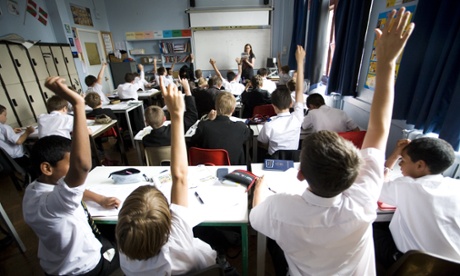
The government’s plans to introduce school lessons on consensual sexual relationships for children as young as 11 do not go far enough, it has been claimed.
A series of lesson plans, under which children would be taught the meaning and importance of consent, were backed by the government on Sunday for use in schools. But ministers stopped short of making them compulsory, leading to claims that many schools will simply ignore them.
The Personal Social Health and Economic Education Association (PSHEA), which produced the lesson plans, said on Sunday that they needed to be added to the national curriculum to help tackle issues such as child sexual exploitation. A spokesman for the association accused the government of “saying nice things but not making a meaningful change”.
He added: “As an expert body, we can produce guidance like this for teachers, which we think reflects leading practice on teaching about issues like consent.
“But, if the government is serious about tackling issues like child sexual exploitation, they need to ensure that this subject is taught in every school and by trained teachers,” said a spokesman.
The organisation said the “inadequacy” of the government’s response was “surprising and deeply disappointing”.
Education secretary Nicky Morgan backed the plans, which would see children being taught about “rape myths”.
Schools that chose to follow the guidance would teach pupils that consent must be an “ongoing process”, as well as talking to them about victim blaming. According to an excerpt of the PSHEA’s guidance, the full version of which is due to be published later this week, pupils would also learn about the effects of alcohol on a person’s ability to consent.
The PSHEA said that lessons on consent should begin before people become sexually active, but that it must also be stressed to them that “the law is clear that sexual activity is illegal for young people under the age of 16”.
It added: “Recognising that some young people will be sexually active before the age of 16 does not equate to encouraging underage sexual activity.”
The plans were first reported by the Sunday Times, which said the lessons were due to start in schools that took them up later this year. A Department for Education (DfE) spokesman said that the reports were based on a leak and, therefore, the department could not comment on them directly.
However, writing in the same newspaper, the education secretary said: “We are working with the PSHE Association to develop a list of recommended materials for use in the classroom to give teachers more confidence and better guidance.”
A DfE spokesman said: “We want to see all young people leave school prepared for life in modern Britain. This means not only ensuring young people receive a rigorous academic education, but also helping them to develop important personal skills and attributes and develop their emotional wellbeing.
“Good PSHE teaching has a vital role to play in this; giving young people a better understanding of the society around them and supporting them to make informed choices and stay safe – and the PSHE Association is drafting new guidance to help teach about consent in an age-appropriate way.”
Sex and Relationship Education (SRE) can currently be taught as part of a school’s PSHE programme. It is compulsory in all secondary schools run by local authorities.

